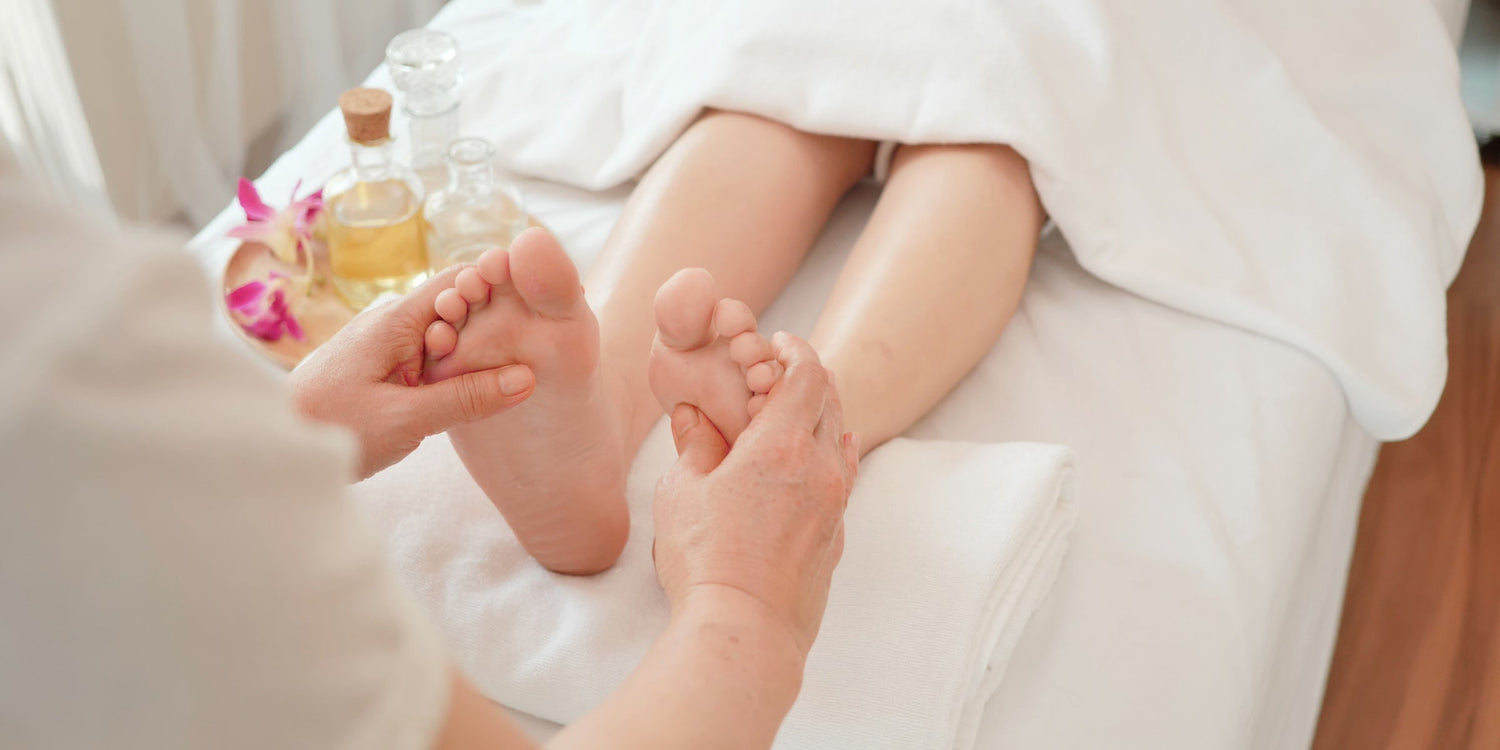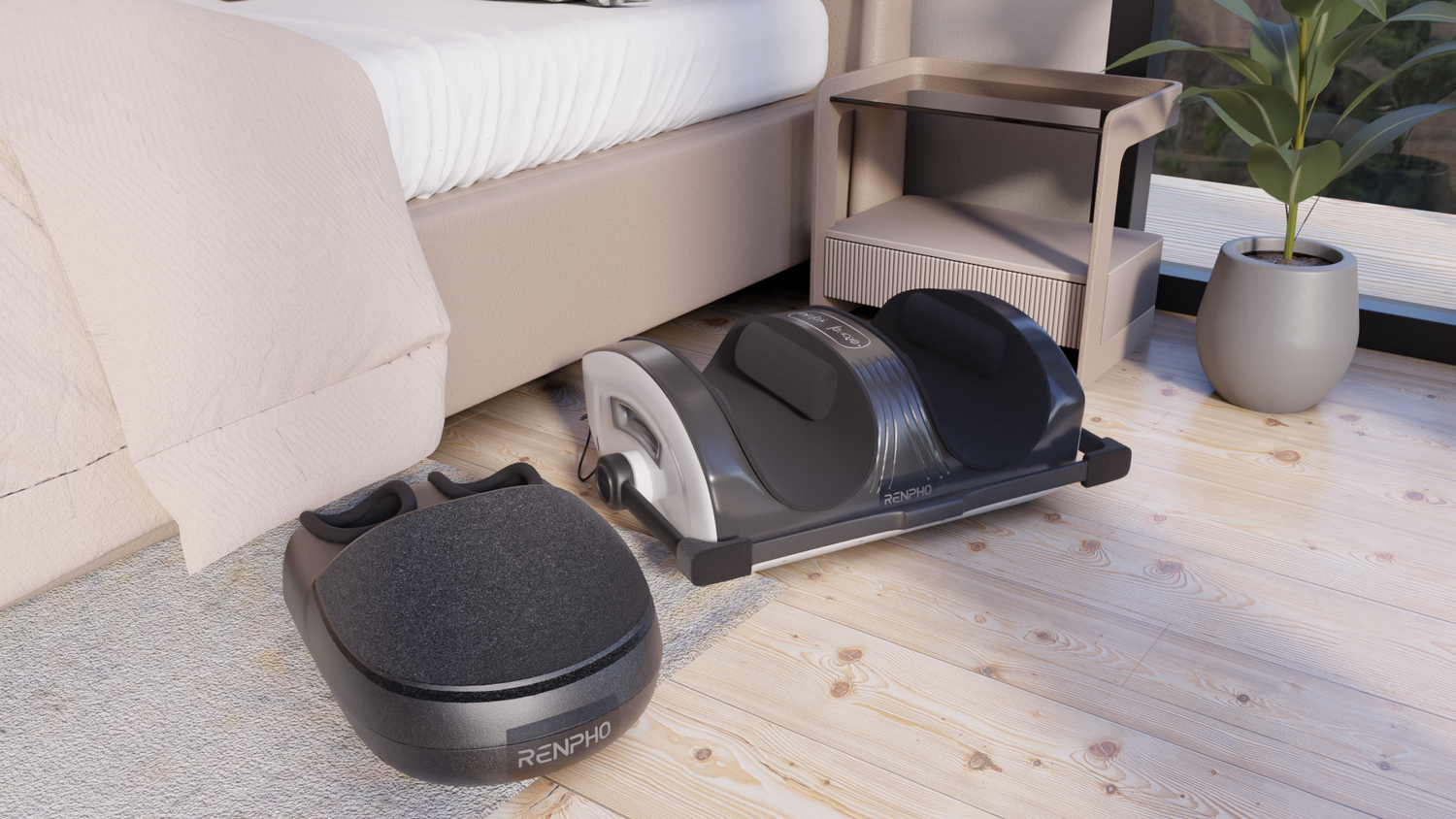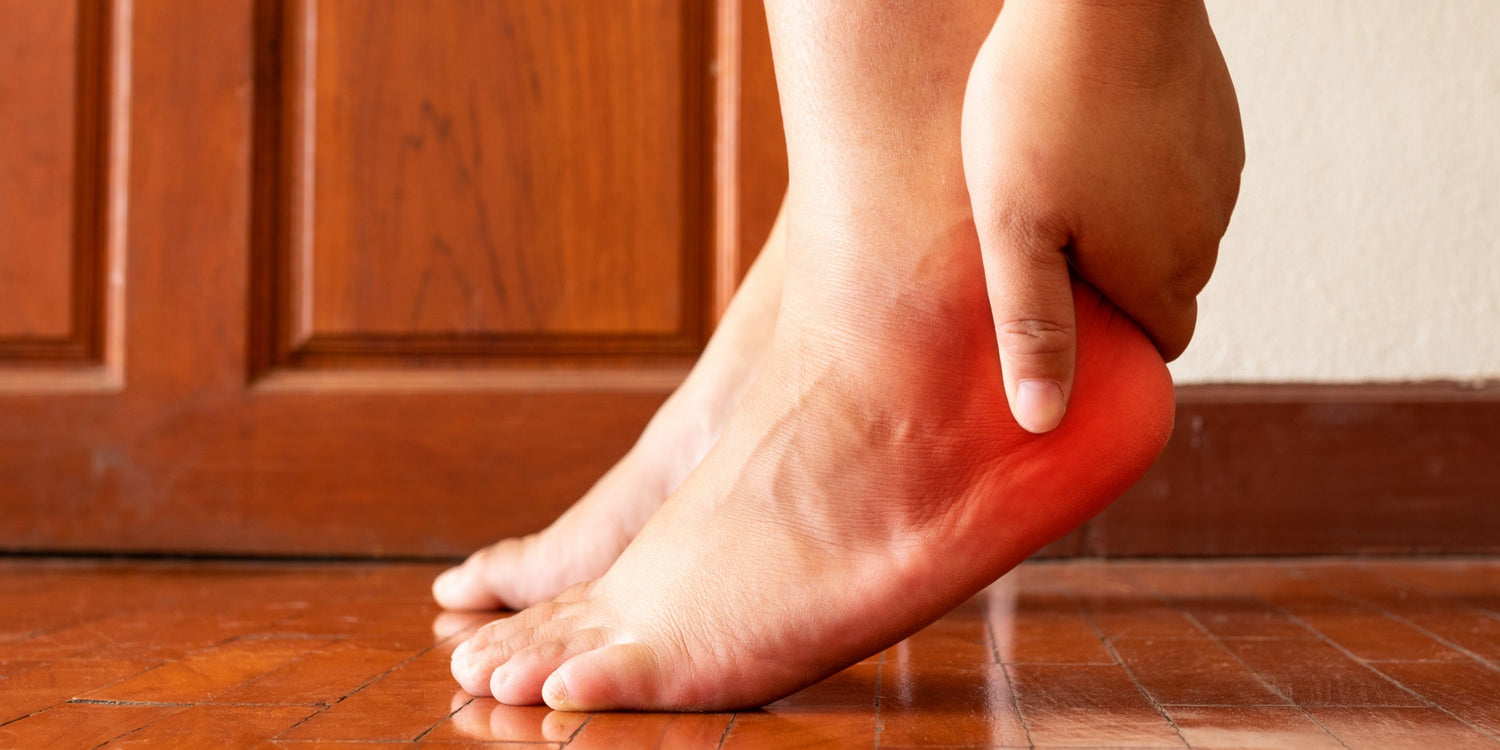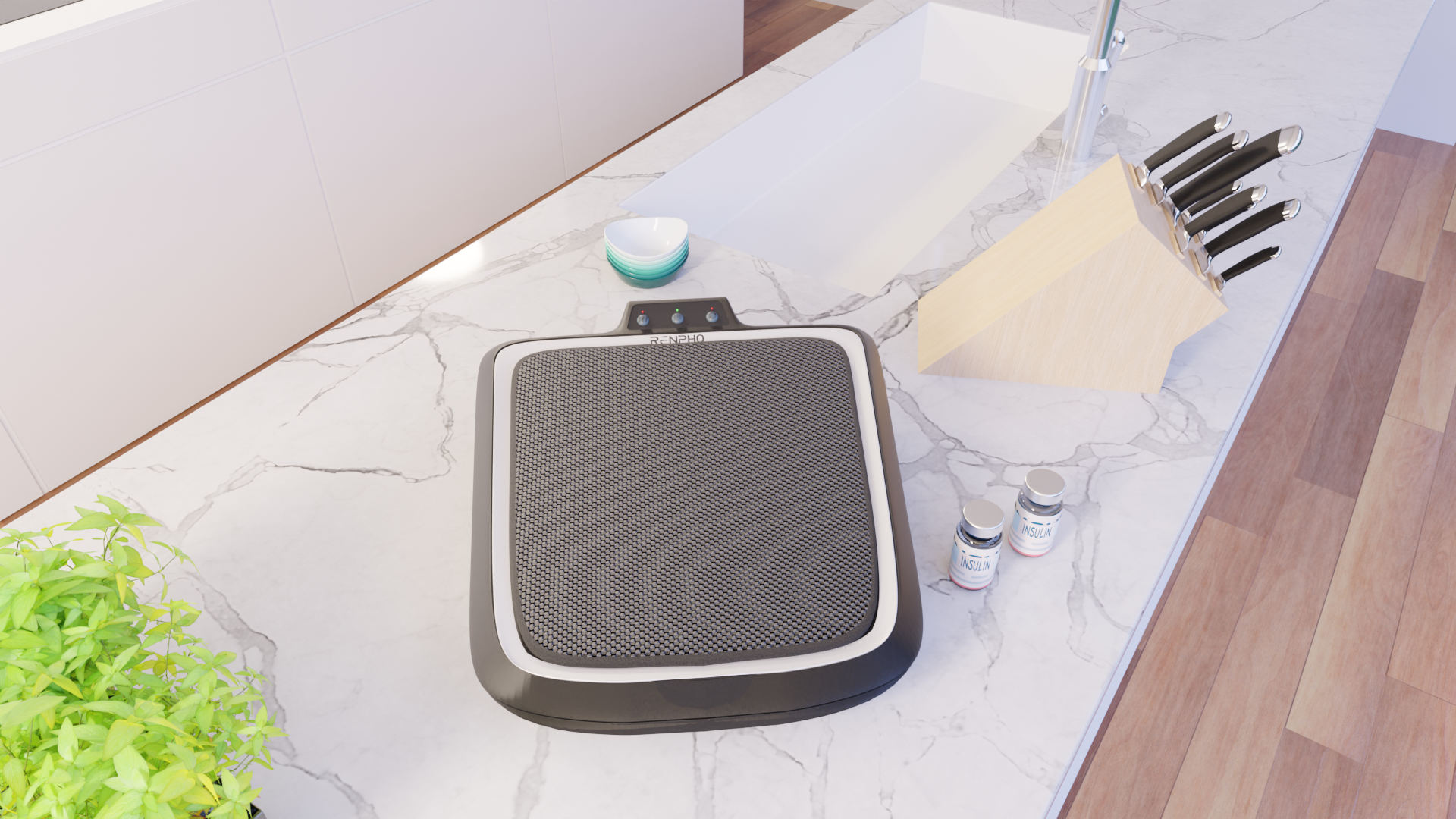Bringing new life into the world is a miraculous and transformative journey. Expectant mothers experience a range of physical and emotional changes as they nurture the precious life growing within them. It's a time of joy, anticipation, and, at times, discomfort. Fortunately, there are holistic approaches that can ease the path to motherhood and promote overall well-being during pregnancy. One such approach gaining recognition is reflexology.
Reflexology, an ancient healing practice that focuses on stimulating specific points on the feet, hands, and ears, offers a gentle and natural way to support expectant mothers throughout their pregnancy. It has the potential to alleviate common pregnancy discomforts and reduce stress and anxiety, thus enhancing overall well-being.
Therefore, if you’re looking to enhance your overall pregnancy wellness, reflexology might just be the nurturing touch you have been searching for. Let's explore the ways in which reflexology can ease the path to motherhood and support you on this incredible journey of creating new life.
What is Reflexology?

Reflexology is a holistic practice that involves stimulating specific points on the feet, hands, or ears to promote healing and overall well-being. This ancient therapy is rooted in the belief that there are reflex points on these areas that correspond to different parts of the body, such as organs, glands, and systems. By applying pressure to these reflex points, reflexologists aim to restore balance and harmony within the body.
It is thought that reflexology can alleviate various health issues, reduce stress, improve circulation, and enhance relaxation. This non-invasive and natural therapy is gaining popularity as a complementary treatment to traditional medicine, allowing individuals to experience a sense of rejuvenation and relief from various physical and emotional ailments.
How Does Reflexology Promote Relaxation and Healing in the Body?
One of the key benefits of reflexology is its ability to relieve tension and promote deep relaxation. The gentle pressure applied to the reflexes on the feet serves not only to release physical tension but also to encourage the release of emotional stress and anxiety. As a result, reflexology can induce a state of deep relaxation, allowing the body to heal and rejuvenate.
In addition to promoting relaxation, reflexology also improves circulation. The pressure applied to the reflexes stimulates blood flow, delivering oxygen and essential nutrients to the organs and tissues. This increased circulation aids not only the removal of waste products but also in reducing inflammation and promoting healing.
Furthermore, reflexology helps to restore balance in the body. When the reflexes on the feet are stimulated, it triggers a response in the corresponding organ or system. By addressing imbalances or blockages in these areas, reflexology can help to restore optimal functioning and promote overall well-being.
What Is the Connection Between Reflexology and Pregnancy?

Reflexology, a complementary therapy, involves the application of pressure to specific points on the feet, hands, or ears to promote healing and relaxation. It is believed to work by stimulating the body's natural energy flow and encouraging balance within the body.
Throughout pregnancy, reflexology offers numerous benefits for both the mother and the baby. By targeting specific reflex points on the feet, reflexologists can help alleviate common pregnancy discomforts such as morning sickness, back pain, and swollen ankles. Additionally, reflexology can help regulate hormones, reduce stress and anxiety, improve sleep quality, and promote overall well-being throughout pregnancy.
However, it is important to consult with a qualified reflexologist who is specifically trained in treating pregnant women to ensure the safety and effectiveness of the treatment.
Is Reflexology Safe During Pregnancy?
While reflexology is a popular alternative therapy, it is important to consider safety guidelines when receiving reflexology treatment during pregnancy to ensure the health and well-being of both the mother and the baby.
First, it is crucial to consult with a healthcare provider before undergoing reflexology during pregnancy. This is especially important during the first trimester, as it is a critical stage of development. Discussing any existing medical conditions or complications with the healthcare provider allows them to assess whether reflexology is safe and appropriate for the individual.
During the reflexology session, there may be potential side effects that could occur. Temporary discomfort or sleepiness are common side effects and should be communicated to the reflexologist. This allows the reflexologist to adjust the treatment if needed, as each individual may have different sensitivities and responses to the therapy.
Clear communication is essential throughout the treatment to ensure the client's comfort and safety. Sharing any discomfort or concerns promptly enables the reflexologist to modify the treatment accordingly, tailoring it to each stage of pregnancy.
5 Benefits of Reflexology During Pregnancy

Reflexology, a therapeutic practice that involves applying pressure to specific points on the feet, hands, or ears, can offer numerous benefits for expectant mothers throughout their pregnancy journey. Here are five key benefits of reflexology during pregnancy:
- Stress and Anxiety Reduction: Pregnancy can bring about a whirlwind of emotions and hormonal changes, leading to increased stress and anxiety levels. Reflexology can help promote relaxation and calmness by stimulating the nervous system and releasing endorphins, which are the body's natural mood enhancers. By reducing stress and anxiety, reflexology can contribute to a more positive and tranquil pregnancy experience.
- Relief from Pregnancy Discomforts: As the body undergoes physical changes during pregnancy, it's common for expectant mothers to experience discomforts such as back pain, swollen feet, and digestive issues. Reflexology can help alleviate these discomforts by targeting specific reflex points that correspond to different organs and systems in the body. By stimulating these points, reflexology can promote better circulation, reduce swelling, and provide relief from various pregnancy-related aches and pains.
- Hormonal Balance: Pregnancy involves significant hormonal fluctuations, which can impact mood, energy levels, and overall well-being. Reflexology aims to restore balance within the body by stimulating the endocrine system, which is responsible for hormone regulation. By promoting hormonal balance, reflexology can help stabilize mood swings, boost energy levels, and support a more harmonious pregnancy experience.
- Enhanced Sleep Quality: Many expectant mothers struggle with sleep disturbances during pregnancy, whether it's due to physical discomfort, hormonal changes, or a racing mind. Reflexology's calming and relaxing effects can help improve sleep quality by inducing a state of deep relaxation and reducing insomnia symptoms. By incorporating reflexology into a bedtime routine, expectant mothers may experience more restful and rejuvenating sleep.
- Bonding with the Baby: Reflexology provides an opportunity for expectant mothers to connect with their growing baby on a deeper level. By massaging specific reflex points that correspond to the reproductive system, reflexology can enhance the mother-baby bond and create a sense of nurturing and connection. This can be a profoundly meaningful experience for expectant mothers as they prepare to welcome their little one into the world.
Are There Any Side Effects of Reflexology During Pregnancy?
Like any therapeutic treatment, it is important to be aware of potential side effects. Some women may experience temporary discomfort after a reflexology session. This is often due to the body's response to the treatment, as reflexology involves applying pressure to specific points on the feet or hands, which may cause minor soreness. Additionally, due to the increased sensitivity during pregnancy, some women may feel emotional after a session. This emotional sensitivity is a normal reaction, but it is essential to communicate any feelings of distress or unease with the reflexologist to ensure appropriate adjustments can be made.
It is also common to feel sleepiness after a reflexology session, as the therapy promotes relaxation and may induce a state of deep relaxation. Therefore, it is advisable to schedule sessions when you have the time to rest afterwards, allowing your body to fully absorb the benefits of the treatment.
Takeaway
Reflexology can be a valuable and nurturing touch for expectant mothers during their pregnancy journey. By promoting relaxation, reducing stress and anxiety, alleviating discomforts, supporting hormonal balance, improving sleep quality, and enhancing the mother-baby bond, reflexology offers a holistic approach to pregnancy wellness. However, it's essential to consult with a qualified reflexologist and communicate any concerns or discomforts during the treatment. With proper guidance and care, reflexology can provide a supportive and rejuvenating experience for expectant mothers as they prepare to welcome their new bundle of joy into the world.
Renpho Health Tips
-

Unveiling the Healing Steps: The Power of Foot Reflexology
April 2, 2024
Read more >
-

Are Vibrating Foot Massagers a Wellness Revolution?
April 1, 2024
Read more >
-

Plantar Fasciitis 101: Understanding the Condition and How to Manage It
April 1, 2024
Read more >
-

Spring into Action: Essential Tips for Maximizing Your Springtime Runs
March 11, 2024
Read more >
-

Sweet Relief: How Foot Massages Can Soothe Diabetics
March 7, 2024
Read more >



































